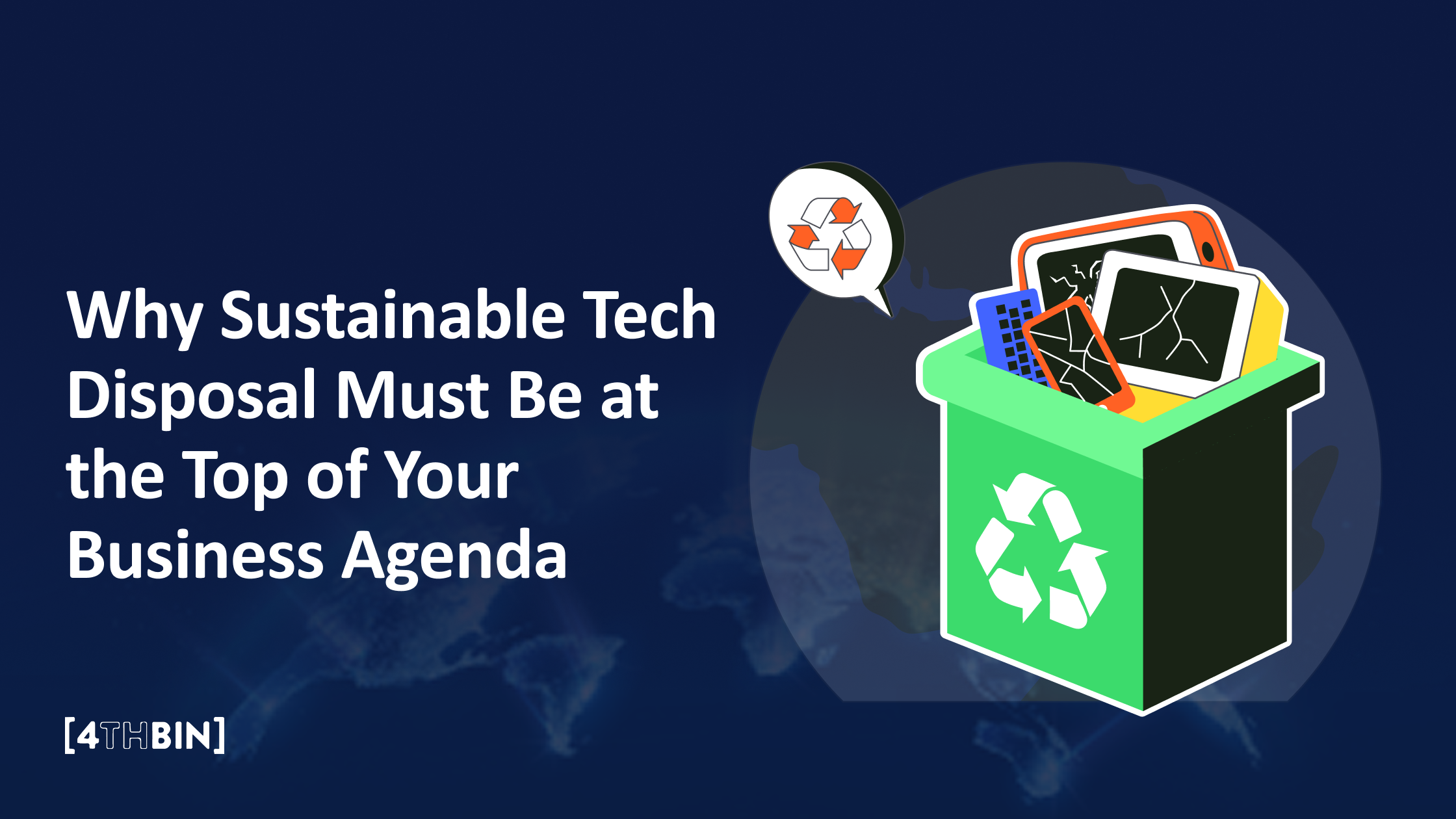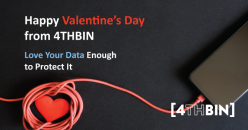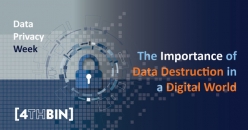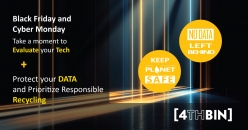Old Cables and Chargers: Toss, Recycle, or Repurpose?
It’s hard to find a house or office without a drawer or box full of old cables and chargers—those random cords we’ve held onto just in case we might need them someday. In 2024 alone, 7.07 billion smartphones were in use worldwide. On top of that, the number of IoT devices is expected to grow to 32.1 billion by 2030. With so many devices being used and replaced more frequently, it’s no surprise that cables and chargers are gathering dust in drawers and boxes everywhere.
But what do you actually do with all of them? Tossing them in the trash isn’t great for the environment, and letting them take up space forever isn’t ideal either. Luckily, there are plenty of easy, responsible ways to deal with your old cables and chargers. In this blog, we’ll walk you through how to dispose of old cables and chargers responsibly, avoid common mistakes, and prepare for recycling them so you can finally clear out that drawer for good.
Common Mistakes to Avoid When Disposing of Old Cables
When getting rid of old chargers and cables, well-meaning efforts can sometimes lead to unintended environmental harm or wasted opportunities. Here are some common mistakes to watch out for and how to avoid them:
Throwing Them in Regular Trash
Old chargers and cables may seem harmless, but tossing them in the trash is one of the worst things you can do. These items often contain harmful materials like lead, mercury, and cadmium, which can leach into soil and water in landfills, posing risks to the environment and human health. Instead of discarding them with household waste, always opt for proper recycling methods.
Using Curbside Recycling Bins
Curbside recycling programs are not equipped to handle e-waste, which includes old chargers and cables. Placing them in these bins can disrupt recycling processes, damage machinery, and contaminate otherwise recyclable materials. Instead, rely on specialized e-waste recycling services or collection programs.
Hoarding Unused Cables Indefinitely
While it’s tempting to keep old cables “just in case,” this often leads to unnecessary clutter and forgotten items. Over time, unused cables degrade, making them less valuable or unsafe. Regularly sort through your collection and donate, recycle, or dispose of items you no longer need.
Neglecting to Check Local Recycling Laws
E-waste regulations can vary by region. Failure to follow local guidelines might result in fines or improper disposal. Before taking action, research local laws and recycling programs to ensure compliance and proper handling of your chargers and cables.
Overlooking Data Security
Although chargers and cables typically don’t store data, they can sometimes be part of larger electronic devices that do. If recycling items like docking stations or smart charging hubs, ensure that any associated data is securely erased or destroyed before disposal.
By avoiding these common mistakes, you can ensure that your efforts to dispose of old chargers and cables are responsible and effective.
|
|
How to Responsibly Dispose of Your Old Chargers and Cables?
![]()
If your old chargers and cables are piling up, there are plenty of responsible and practical ways to handle them. Here’s how you can ensure they’re put to good use or disposed of safely:
Donate to Those in Need
Many old chargers and cables are still functional and can benefit someone else. Local charities, schools, or community centers often welcome donations of working tech accessories. These organizations use them for teaching purposes, supporting needy families, or even as spares for equipment. Additionally, some donation programs focus on repurposing tech accessories for underprivileged communities. Before donating, test the items to ensure they’re in working condition and bundle them neatly.
Participate in E-Waste Collection Drives
E-waste collection drives are an excellent opportunity to responsibly dispose of old chargers and cables while supporting community and environmental initiatives. Municipalities, environmental groups, schools, libraries, and community centers frequently organize these drives to make recycling electronic waste accessible for everyone.
These events provide a convenient solution for households to declutter and safely dispose of unused tech accessories. Unlike general recycling, which may not be equipped to handle e-waste, collection drives ensure that items like chargers and cables are correctly processed to minimize environmental impact.
To find an e-waste collection drive near you, search online for local events or check announcements from your community center, school district, or local government. Many certified recyclers also host periodic drives and share schedules on their websites. By participating in these initiatives, you declutter your home and contribute to community sustainability efforts.
Utilize Retail Drop-Off Programs
Many electronics retailers and manufacturers now offer convenient drop-off programs for old chargers and cables. Major retailers like Best Buy or Staples often have e-waste collection bins where you can safely dispose of small electronic accessories. Some brands, like Apple and Samsung, even offer trade-in or recycling programs where they repurpose components into new products. Before visiting, check the store’s policy to ensure they accept chargers and cables.
Recycle with Certified Services
Recycling your chargers and cables through certified services is the most responsible and environmentally friendly option when your chargers and cables are no longer functional.
Certified e-waste recyclers, like 4THBIN, adhere to rigorous environmental standards such as the R2v3 certification. This ensures that e-waste is handled responsibly, from dismantling and material recovery to proper disposal of hazardous components.
Why Choose Certified Recycling?
- Material Recovery: Chargers and cables contain valuable resources like copper, aluminum, and plastics that can be reclaimed and reused in new products, conserving natural resources.
- Data Security: If your chargers or cables are part of a larger electronic item, certified recyclers often take steps to ensure that any associated data is securely wiped or destroyed.
- Compliance and Accountability: Certified services like 4THBIN follow strict regulations and standards, giving you peace of mind that your e-waste is managed responsibly and ethically.
Moreover, recycling with certified services helps reduce e-waste and supports a circular economy where old materials are transformed into new products. It’s a simple step to protect the environment and promote sustainable practices. When it’s time to let go of your old chargers and cables, trust certified professionals to do it right.
How to Handle Your Chargers and Cables for Recycling
Recycling chargers and cables responsibly starts with proper preparation. Here’s a step-by-step process to help you prepare your chargers and cables for recycling:
Gather All Your Chargers and Cables
Start by collecting all the chargers, cables, and accessories you want to recycle. Look through drawers, storage bins, and workspaces where you may have stashed old or unused chargers. Be sure to include electronics such as power bricks, USB cables, and detachable parts that are no longer functional or needed.
Tip: Check for duplicates or outdated items you no longer use. Keep any functional ones you might still need to avoid recycling unnecessarily.
Inspect for Functionality
Before recycling, determine if any of the chargers or cables are still in working condition. Functional items can often be donated or passed on to someone who can use them, which is a more sustainable option than recycling. Test them by plugging them into a compatible device to ensure they work correctly.
Remove Personal Attachments
If your chargers or cables have personal labels, tags, or stickers, remove them before recycling. These additions are typically not recyclable and can interfere with the recycling process. Use a damp cloth or rubbing alcohol to remove adhesive residue if needed.
Bundle Similar Items Together
To make recycling more efficient, sort and bundle similar items together. Use twist ties, rubber bands, or zip ties to secure cables in small loops. Group chargers and cables separately for easier handling by recycling facilities. For example, you can bundle USB, HDMI, and power cords into separate groups. This prevents tangling and makes it simpler for recyclers to sort the materials.
Check Local Recycling Requirements
Different recycling programs may have specific guidelines for preparing electronics. Some facilities require you to separate the materials (e.g., plastic adapters vs. metal cables), while others accept old cables as is. Check the requirements of your chosen recycler or e-waste collection program to ensure compliance.
Secure Damaged Cables
If your cables are damaged, frayed, or have exposed wiring, consider covering the exposed parts with electrical tape before recycling. This prevents sharp edges from injuring handlers and ensures safe transportation.
Pack Your Cables Properly
If you’re dropping off your chargers and cables at a recycling center or collection drive, pack them securely. Use a box or bag to contain the items and prevent them from getting lost or scattered during transit. If the recycler requires it, label the package as “E-Waste.”
Confirm Recycler Certification
To ensure your chargers and cables are handled responsibly, verify that the recycling facility or program is certified, such as by R2v3 or e-Stewards. Certified recyclers follow strict environmental and ethical standards, ensuring your items are processed safely and sustainably.
By following these steps, you can streamline the recycling process while ensuring safety and efficiency. These small, thoughtful actions significantly protect the environment and promote sustainability.
Make Old Cables Matter, Recycle Them with 4THBIN
![]()
Are you worried about your cables and chargers taking up unnecessary space in your drawers? With 4THBIN ’s e-recycling solutions, you can ensure secure, compliant, and environmentally responsible disposal of old chargers and cables.
With over a decade of experience, 4THBIN has partnered with more than 10,000 organizations, including Fortune 100 companies and small businesses, to transform e-waste challenges into opportunities.
Our certified data destruction services ensure that sensitive information is completely safeguarded, eliminating the risks of data recovery associated with improper disposal. From secure RemoteReturn mail-in options to convenient on-site collection, our customizable solutions allow you to choose the plan that best suits your needs.
Let us Handle Your Tangled Cords.
Contact Us










